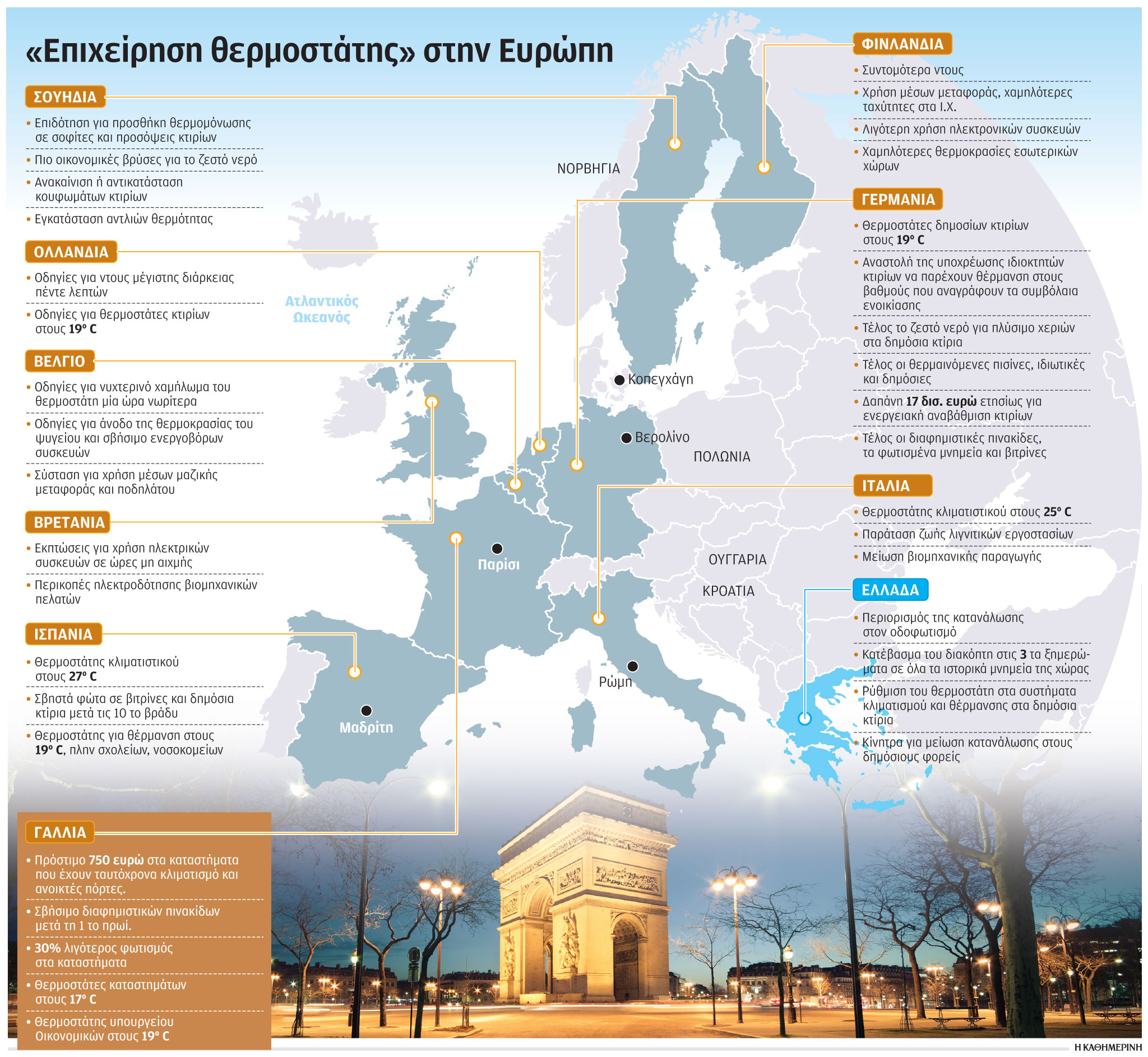
Greece may not have introduced mandatory energy conservation measures like other European countries to limit the impact of high prices, but the country’s housewives and businesses have begun to regulate their consumption on their own to cut costs. Official data from ADMIE show a “fall” in electricity consumption in July, with medium and low voltage households and businesses reducing their consumption by 11.45% year-on-year.
A decrease of 5.51% is also shown in the same month in electricity consumption by high-voltage enterprises after an increase of 8.39% in June and 13.5% in May compared to the corresponding months of 2021, which, however, according to industry representatives, this is solely due to LARCO’s 50% reduction in consumption in July and does not reflect any corresponding trend in the domestic energy-intensive industry.

The decrease in household consumption does not seem to be related to weather conditions, as July this year was only 1-2 degrees colder than last year, and therefore the need for air conditioning is about the same.
Closed air conditioners in homes and selection of naphtha from refineries to limit energy costs.
It turns out that households have chosen to stay for a few hours without air conditioning in order to cut down on electricity costs, which also shows the trend they will follow in winter, respectively, in terms of heating costs. Weather conditions are an important indicator of the dynamics of demand for electricity and natural gas, not only in Greece, so the whole of Europe is looking forward to a mild winter, an ally in dealing with the issue of high prices and energy availability.
Domestic natural gas consumption has also been declining since April, mainly as a result of reduced consumption by refineries, which are one of the main consumers, replacing expensive natural gas with naphtha and cutting their operating costs. According to DESFA, in July, domestic consumption of natural gas decreased by 12.8% compared to the corresponding month last year and decreased from 6,687,745,973 kilowatt-hours to 5,829,330,209. Small business and household consumption in July increased slightly compared to with last year, according to data from three SRSs. At EDA Thessaloniki, consumption reached 128,000 MWh in July from 110,000 MWh last July, at EDA Attica up to 82,500 MWh from 83,500 MW and at DEDA up to 218,000 MWh from 200,000 MWh in July 2021. direct-connected industrial meters fell to 347,000 MWh in July from 900,000 MWh in the same month last year.
Environment and Energy Minister Kostas Skrekas yesterday spoke of a more than 15% reduction in energy consumption in July, noting that “saving energy should become part of our daily lives, just like in Germany and Italy.” With natural gas prices hitting one record after another, reaching EUR 320/MWh yesterday, and electricity prices exceeding EUR 700/MWh, European governments are announcing saving programs. Greece has prepared its own plan for public buildings and will also launch a voluntary reduction campaign for domestic consumers.
Restricting street lights and turning off the switch at 3 am in all historical monuments, adjusting the thermostat in air conditioning and heating systems, and smart use of energy-intensive electrical appliances are some of the measures.
Measures for a difficult winter
The prospect of a very difficult winter is forcing European governments to issue a series of recommendations and take mandatory energy saving measures as temperatures drop and the war in Ukraine continues. Unfortunately, the savings don’t even translate into environmental benefits, as Russia appears to be flaring large volumes of gas destined for Europe.
It will be much darker in European cities this winter, with instructions to turn off shop windows, illuminated signs, building lights and advertising – a measure that will be enforced in Germany after 10 p.m. Some measures are temporary, such as lowering thermostats to 19 degrees (Ireland is notable for setting temperatures of 20 degrees for living areas and 15-18 for bedrooms). But there are also measures to help save energy overall, as some countries turn a need into an opportunity. Among them is Sweden, which subsidizes the installation of even better insulation in buildings, with a focus on “suffering” parts such as attics and old frames. Countries that have invested in transport systems and cycling in recent years have great potential to reduce transport energy consumption so that scarce energy resources can be used in other sectors of the economy.
Source: Kathimerini
Lori Barajas is an accomplished journalist, known for her insightful and thought-provoking writing on economy. She currently works as a writer at 247 news reel. With a passion for understanding the economy, Lori’s writing delves deep into the financial issues that matter most, providing readers with a unique perspective on current events.